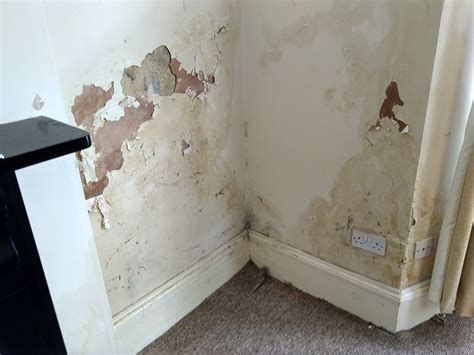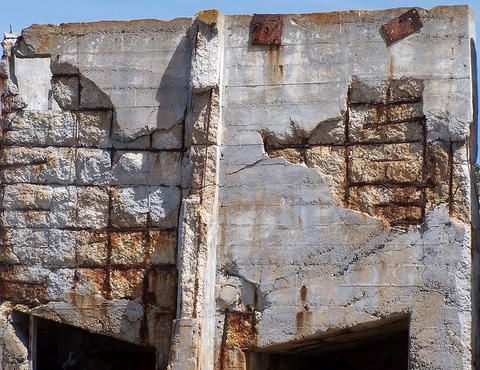Have you ever observed wall cracks and wondered why they occurred? Wall cracks are not only ugly, but they may also be a sign of underlying issues that could compromise your building's safety and structural integrity. We'll look at the top five causes of wall cracking in this blog post and explain how Uniguard can assist you in fixing them.
1.Thermal Expansion and Contraction
One prevalent cause of wall cracks is thermal expansion and contraction. As temperatures fluctuate, wall materials expand and contract, leading to stress and tension. Over time, this strain can result in cracks, particularly along joints and corners. The expansion and contraction caused by thermal changes can impact walls constructed from various materials, including concrete, brick, plaster, or drywall.

2.Damp And Moisture Damage
Dampness and moisture infiltration cause not only dark marks but also cracking, which occurs when water seeps into your walls through leaks, cracks, or condensation, causing the materials to swell, warp. Untreated cracks worsen damp problems and lead to more cracking. Moisture damage from water seeping into walls causes swelling, warping, and mold growth, especially in humid areas like bathrooms and kitchens.
3.Foundation Settlement
Foundation settlement is a third frequent reason for wall cracks. This is the result of shifting, sinking, or eroding soil beneath your foundation, which makes your foundation move or crack. Natural elements like soil composition, climate, and seismic activity can cause foundation settling, as can human issues like subpar building practices, leaky plumbing, or overgrown landscaping. Any kind of wall can be impacted by foundation settling, although load-bearing and exterior walls that are immediately attached to the foundation tend to exhibit it more.
4. Structural Damage
Structural damage is a fourth frequent reason why walls fracture. Your walls will droop, bow, or fracture as a result of structural elements like beams, columns, or joists being damaged, degraded, or overloaded. Natural disasters like aging, fire, or termites, as well as human-caused events like renovations, remodeling, or faulty installation, can all lead to structural damage. Any kind of wall can sustain structural damage, but load-bearing and partition walls—which bear the weight of your building—are particularly vulnerable to it.

5. Poor Quality Materials Or Workmanship
Inadequate construction or material quality is the fifth most frequent reason for wall cracks. Your walls may crack, peel, or crumble as a result of inferior, faulty, or mismatched building materials or construction techniques. Although poor craftsmanship or low-quality materials can damage any kind of wall, uneven, loose, or cracked walls are more frequently caused by improperly installed or low-quality materials such cheap plaster, drywall, or paint.
How Uniguard Can Fix Your Cracks On Walls

Now that you know the five most common causes of cracking in your walls, you may be asking how to remedy them. The good news is that Uniguard, a prominent provider of crack repair services, can assist you with any sort of crack on any wall. We provide a variety of products and services aimed at sealing, filling, and restoring wall fissures to their original appearance.
Here are some of the solutions we provide
Cementitious mortar for leveling and smoothing
1-Unimix SF: Flexible Superfine & Water-resist get leveling cementitious putty for interior and exterior applications up to 10 mm thicknesses
2- Uniguard Power Mix: A high- quality non shrink cement repair mortar specially designed for leveling concrete and plaster surfaces, suitable applications up to 5 mm thicknesses
Cementitious mortar for patch and concrete repair
1- Unimix UW: Fiber reinforced, flexible & crack bridging cementitious repair mortar for wide joints up to 50 mm for both indoor and outdoor applications
2- Unimix RM: High Build & high strength fiber reinforced cementitious repair for structural repairs.
3-Unimix Render Medium: Cement Plaster for repairing and smoothing concrete, blockwork and brickwork.
4- Dry Mix: A ready-mixed cementitious screed composed of selected aggregates, additives, and fibers, suitable for applications up to 30 cm thickness
Cementitious grout for concrete repair.
1- Unimix GR Flow: General Purpose non-shrink cementitious grout, flowable or trowelable for gap thickness 10 to 100 mm.
2- Unimix GR Plus: Non-shrink cementitious grout, which Is used as a repair of concrete that resists high stress for gap thickness from 15 mm to 100 mm.